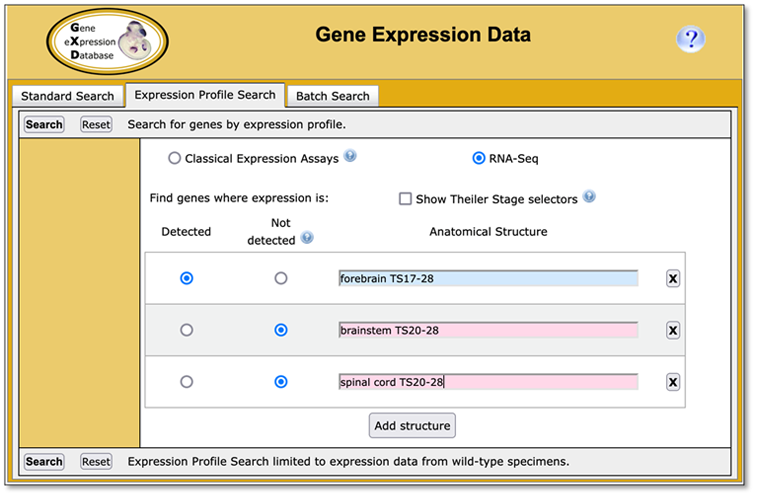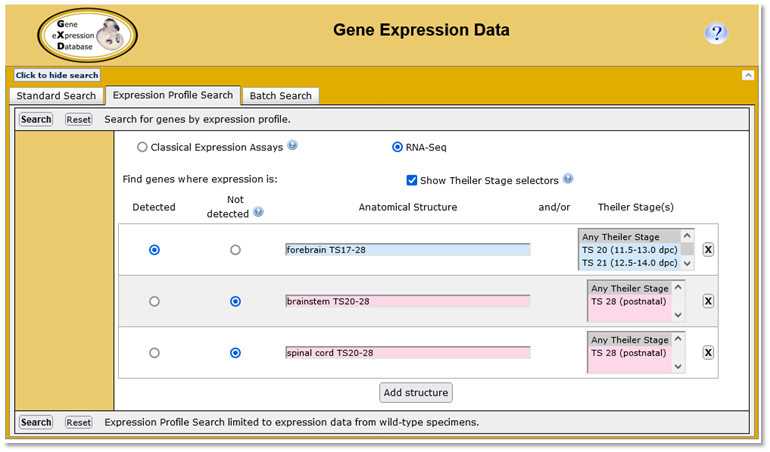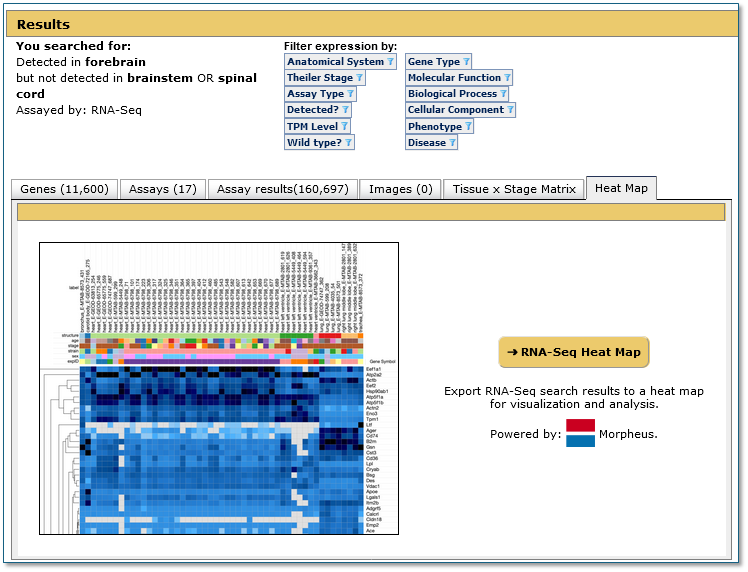GXD has enhanced the Expression Profile Search, a tool to search for genes by their expression profile
Since it was developed, it allowed users to define the expression profile of interest by specifying up to 10 anatomical structures and whether expression is present or absent in these structures. Now users can also specify the developmental (Theiler) stage(s) of interest. Further, the Expression Profile Search is no longer limited to classical types of expression data but now also works with RNA-Seq data.
Choose the assay type
Begin by choosing the Classical Expression Assays (RNA in situ, immunohistochemistry, knock-in reporter, Northern blot, RT-PCR and Western blot assays) or RNA-Seq.

Fill in the anatomical structures and/or Theiler stages to develop the expression profile
By default, only the selectors for anatomical structures are displayed. There must be at least one structure chosen as Detected (expressed) in any search. The fields will autocomplete structures from the Mouse Developmental Anatomy Browser. To ensure successful searches, the autocomplete list is limited to anatomical structures for which GXD has the selected types of expression data.

If you also want to specify developmental stages, check “Show Theiler stage selectors”. You can define search profiles based on developmental stages alone, or you can use combinations of anatomical structures and developmental stages. To ensure successful searches, the stage list is limited to developmental stages for which GXD has the selected types of expression data.

Search results summary for RNA-Seq data
Expression Profile Searches using RNA-Seq data yield the same multi-tabbed summaries as the other expression searches in GXD. However, because these searches usually return large numbers of genes, the Tissue x Gene Matrix is not that helpful. Instead, the summary features a new Heat Map tab. Clicking on the > RNA Seq Heat Map button will open a browser window displaying your data in Morpheus, a tool created at the Broad Institute for display and analysis, including sorting, filtering, hierarchical clustering, nearest neighbor analysis, and visual enrichment.

The Expression Profile Search is available directly from the GXD homepage or as a tab on the Gene Expression Data Query